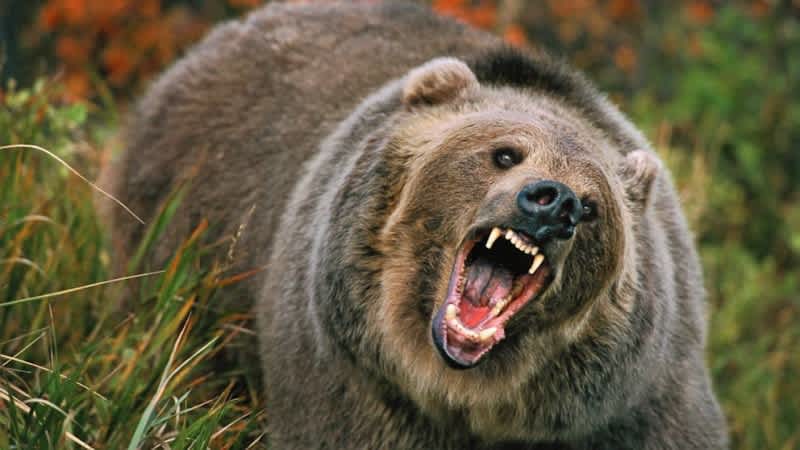Man Tries to Shoot Grizzly to Save Wife, Kills Her with Ricochet
OutdoorHub Reporters 01.22.16

In October 2014, Claudia Huber of Johnson’s Crossing, Yukon was mauled by a bear that assaulted her in her own driveway and dragged her more than 60 feet across a nearby creek. Despite the best efforts of her husband, who had armed himself with a rifle, Huber succumbed to her wounds and died after being transported to a local hospital. A recent report by the Yukon’s Chief Coroner’s office found that the death was actually caused by a ricocheting bullet, and not wounds inflicted by the bear.
“What transpired at that property on that day was an absolute, catastrophic collision of events,” chief coroner Kirsten Macdonald told the CBC.
The attack occurred when a grizzly bear crashed through a window into Huber’s home and chased her and her dog outside. Huber initially tried to take shelter in a car while her husband, Matthias Liniger, pulled up in another vehicle.
“The bear got onto the hood of the vehicle that Ms. Huber was in and repeatedly jumped on the hood,” Macdonald wrote in her report. “The bear then moved off that vehicle and tried to climb onto the other vehicle with the male occupant inside. The male occupant started to honk the horn of his vehicle, at which time the bear started to run away. It is believe that Ms. Huber may have seen the bear running away and took the opportunity to try to get into the vehicle with the witness because she had the keys to that vehicle.”
That turned out to be disastrous mistake. In what officials are now categorizing as a predatory attack, the bear ran back between the cars and grabbed Huber. Liniger went inside the house to retrieve a rifle, and by the time he came back out, the grizzly had already dragged Huber into a nearby forest. Investigators said Huger was attempting to play dead—exactly the wrong thing to do during a predatory attack.
“A predatory attack requires the victim to fight back against the bear,” Macdonald explained.
Liniger fired the rifle several times at the bear, hitting it at least twice. Unfortunately, one of the shots also deflected off a nearby tree and right into his wife’s chest.
“A bullet meant for the bear struck a tree branch and deflected from the anticipate path and trajectory. The bullet struck Ms. Huber in the chest causing death,” read the report.
The cause of death was not immediately discovered due to the extent of Huber’s injuries from the bear. Shortly after the report’s release, Liniger said he was overwhelmed by the knowledge that he fired the fatal shot.
“It was almost already too much what happened there, what I saw, what I heard,” he told the CBC. “And now I have to somehow get over that fact, too, that a bullet killed her.”
Macdonald said that Liniger did the right thing in trying to defend his wife. A bear engaged in a predatory attack will not likely leave unless it is either chased off or killed. In this case, the grizzly also later died from its injuries. Macdonald told Yukon officials that more education is needed to inform the public on what to do in the case of a bear encounter, and especially how to differentiate between predatory and defensive attacks.
“There appears to be ongoing misinformation in the public, despite efforts to get this message out,” she wrote. “The public, and perhaps even school children at a young age, need to be educated on what to do if a bear encounter occurs, how to tell the difference between the type of behavior, and what actions should be taken depending on the behavior of the bear and the nature of the encounter.”
Hunters have long known that something as small as a tree branch could have a significant impact on bullet trajectory, and how easy it is to not notice in the heat of the moment. Unfortunately, in this case it also had tragic consequences.

